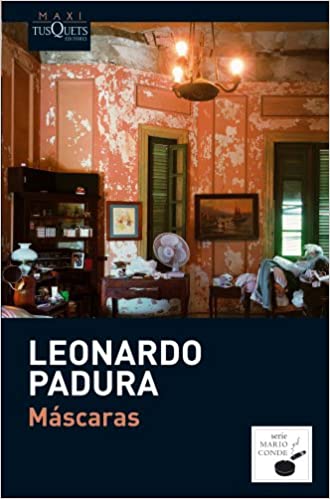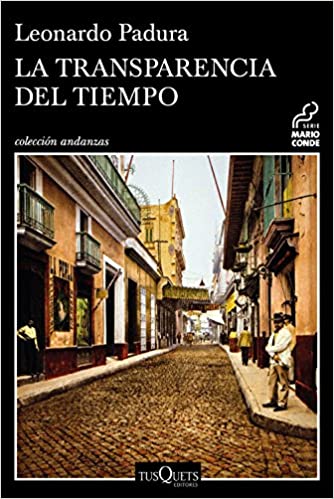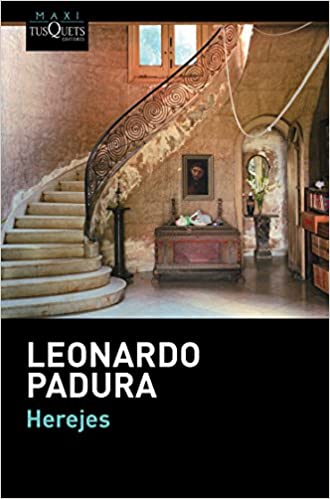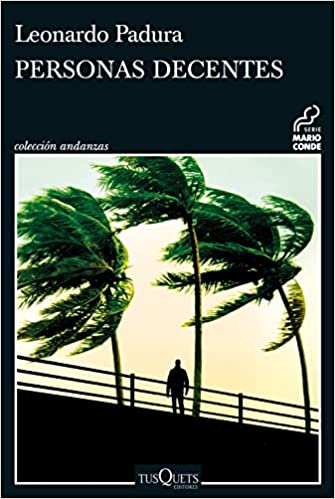Leonardo Padura, Cuban journalist and writer like few others has given that small great island. because of Leonard Padura it is a vocation and a career in the world of letters. Trained in Latin American literature and oriented to journalism as a way out of that love for letters, Padura gradually found good stories to tell and the audience needed to read them.
We usually associate the Police genre or black to colder countries, the further north the homicide the more believable it seems. It is what the few hours of light have, the mist between the streets and the evening recollection of the people in their houses.
But authors like Leonardo Padura remind us that evil, especially in its homicidal aspect, is everywhere. Wherever there is an interest, a disturbed mind or a subjective motive for maximum revenge, a black genre can always be considered as a reflection of what is most atrocious in our world.
He is not an exclusive author of the black genre, but for me it is his most relevant facet. I insist, these are subjective impressions. Perhaps you want to squander me in the public square for what I say, but it is about private assessments. Among so much literary work that addresses research, essays, literary criticism, and fictional narrative, there is always plenty to choose from. Each one to determine their tastes.
3 recommended novels by Leonardo Padura
Masks
This novel is already a few years old, but it was overwhelming at the time and I still recall it with pleasure (if a reading achieves that residue for years, it will be very good) In this novel, his famous police lieutenant Conde takes on a very particular case.
A transvestite appears dead on the outskirts of Havana. When it is revealed that this is Alexis Arayán, the son of a Cuban diplomat, death acquires that transcendental point that surrounds power, political spheres and even international networks. Or just plain homophobia.
Sexuality in its different forms, an aspect so supposedly open on the island (as long as it is straight), can be in this case a treacherous reason for death. The Count racks between various assumptions to discern the truth of the case. Havana will be transformed into a city of masks where the music, the night and the underlying double standards end up composing a harrowing picture.
The transparency of time
Delving into the black, the latest from Padura offers us a unique glimpse of his Cuba. Reviewed anda in this space. I recently reviewed the novel God does not live in Havanaby Yasmina Khadra.
Today I bring to this space a book that bears certain analogies with the one already referenced, at least in terms of the subjective prism of the scene. Leonardo Padura also offers us a different vision of the Cuban capital.
Through his character Mario Conde (any resemblance to Spanish reality is pure coincidence), we travel through Havana of shadows among so much light from the Caribbean. However, the background of the stories vary considerably. In this case we move in a noir plot, with that natural contrast of the paradisiacal location.
And yet, the whole story moves exceptionally well between Cuban son and cantinas. In every city there is always an underworld that moves within the deepest gear of the city itself. Mario Conde will move through this underworld, in search of a stolen work of medieval art. But events are precipitating sinisterly around them...
At the same time that we are trying to discover what is happening around that stolen black virgin, we are introducing ourselves into the future of the carving itself. How did she get from Spain to Cuba? Among the dark plot, an interesting adventure narrative opens up for us with the historical touch of the Spanish civil war, of the exiles, and of a long time ago, of so many years, centuries, in which the carving went through all kinds of circumstances…
Thus, when reading this book, we doubly enjoy those ramifications that are linked with mastery, as if the present and the past were the present and past reflections of the same world, contemplated from its inert existence by the black virgin.
Heretics
Nazism pushed Jews to seek refuge anywhere in the world. Havana in 1939 was about to welcome hundreds of Jews longing to escape the murderous madness. The idea failed for unfathomable political reasons and the fate of those Jews returned to the gray of the extermination camps.
Padura starts from this journey to nowhere to propose a fantastic plot in which an invaluable painting by Rembrandt becomes the ultimate motif of the plot. That ship carried the work of art, a kind of reward that the Cuban government could have received as compensation for political asylum. Daniel Kaminsky, a child in those days of the frustrated landing, now as a man in 2007, sets out to find that painting. Lieutenant Conde is ready to help him. But Daniel did not tell him everything necessary to contextualize what that painting means...
Other recommended novels by Leonardo Padura
decent people
More than 20 years have passed since the first disillusioned Mario Conde in the world that was presented to us in «Past Perfect». This is the good thing about paper heroes, they can always rise from their ashes to the delight of those of us who let ourselves be carried away by their more or less mundane paths. They no longer need to be heroes, just survivors from the less friendly side of the world. That is precisely the fate of Mario Conde de Leonard Padura.
Havana, 2016. A historic event shakes Cuba: the visit of Barack Obama in what has been called the "Cuban Thaw" ―the first official visit of a US president since 1928―, accompanied by events such as a Rolling Stones concert and a Chanel fashion show turn the rhythm of the island upside down.
Therefore, when a former leader of the Cuban Government is found murdered in his apartment, the police, overwhelmed by the presidential visit, turn to Mario Conde to lend a hand in the investigation. Conde will discover that the dead man had many enemies, since in the past he had acted as a censor so that artists did not deviate from the slogans of the Revolution, and that he had been a despotic and cruel man who had ended the careers of many artists who They had not wanted to give in to their extortions.
When a second body murdered with the same method is found a few days later, Conde must discover if the two deaths are related and what is behind these murders.
Added to that plot is a story written by the protagonist, set a century earlier, when Havana was the Nice of the Caribbean and people lived thinking about the imminent change that Halley's Comet would produce. A murder case of two women in Old Havana uncovers the open fight between a powerful man, Alberto Yarini, refined and from a good family, kingpin of gambling and prostitution businesses, and his rival Lotot, a Frenchman, who disputes the preeminence. The development of these historical events will be connected to the history of the present in a way that not even Mario Conde suspects.





Thanks for your recommendations.
I just discovered mr. Padura, through the novel The Transparency of Time, and I really like it. This is not a simple mugshot - far from it. The characters, both of the private detective (a trade that informs us that it does not exist in Cuba) Mario Conde and those of his friends and other partners, develop in a profound way that brings us very close to them. There are cultural elements that are authentic and particular to Cuba. Certainly, the inconstancy of time mentioned in the title is a mysterious and essential element. There are mystical or spiritual experiences (positive and negative) that are presented in a credible way, with no intention of being taken literally - but they could also be interpreted that way.
What is most profound for me in this book, and what saves it from being just a story of misery and human cruelty, are friendships. Mr. Conde is indeed a very good person, and he places great importance on his friends. He is empathetic, and everything that is terrible in the story is viewed from that compassionate perspective. Deep down, if there is a message at least as I interpret it, it is that of love of neighbor. Ah! and let's not forget it; Detective Conde is gifted by his creator Leonardo Padura with a great sense of humor.
Thank you very much for your brilliant contribution.
Regards!
The man who loved dogs is for me one of the best novels of the Master. I reiterate »one of the best ..»
For me, Leonardo Padura is the best living Cuban writer and is among the greatest of all time and I believe that in the next few years he will win the Nobel Prize for Literature.
The man who loved dogs, The Story of my life and Like dust in the wind are the works that I liked the most.
I can't agree more with everything you say
The man who loved dogs.
The novel of my life.
More expensive.
All his work is great, it reflects the incredible and real of our human existence and of our nation.
The man who loved dogs, undoubtedly Padura's best book….